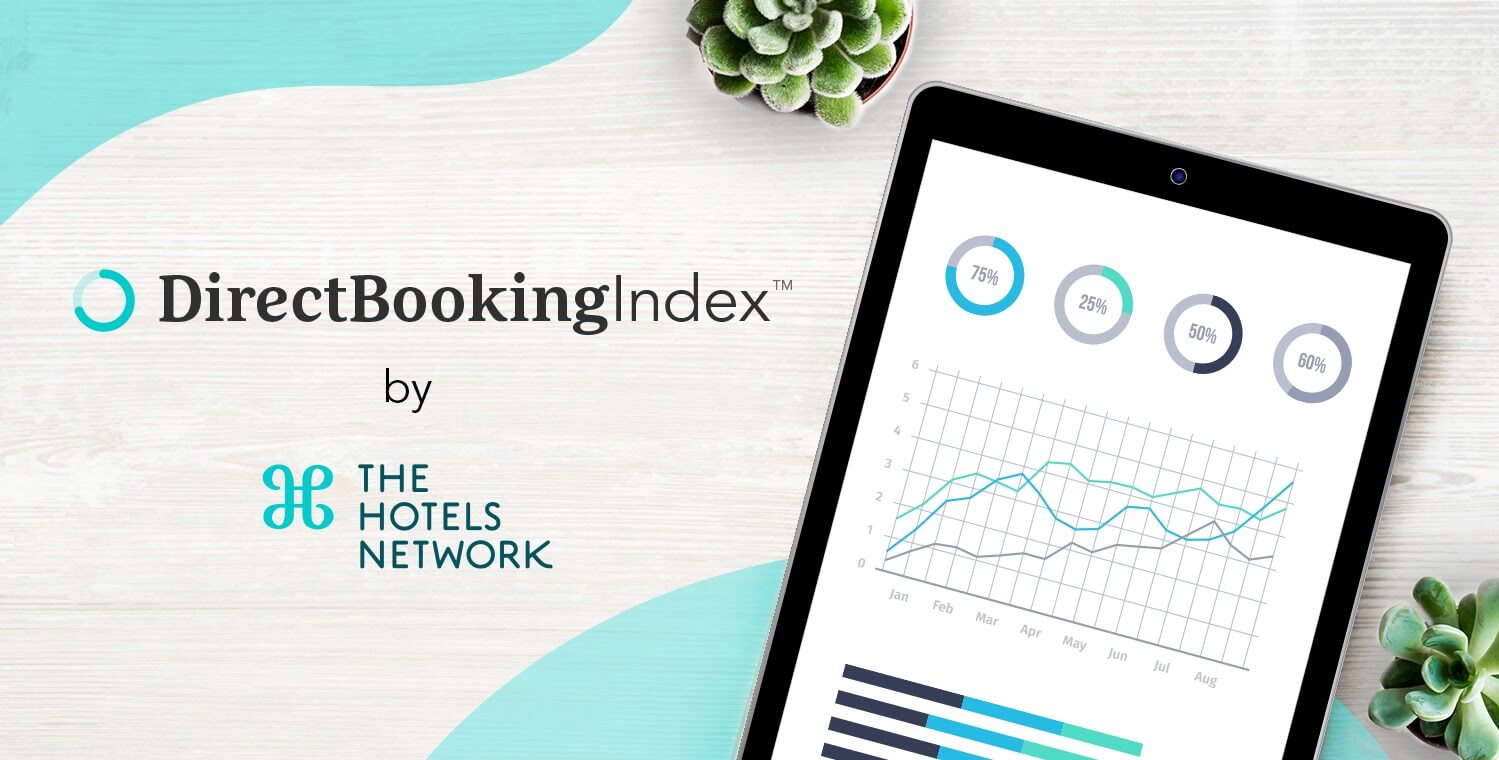As our industry strives for recovery, it’s becoming even more critical for hotel brands to build a strong direct booking channel strategy that guarantees long-term success.
NB: This is an article from The Hotels Network
However, when it comes to benchmarking metrics for hotels, there has been little focus on the direct channel, despite its growing importance in the industry.
Hoteliers have long seen the benefits of monitoring their hotel performance through metrics and KPIs, from RevPAR and ADR (Average Daily Rate) to MPI (Market Penetration Index) and LOS (Average Length of Stay). More than a simple website conversion rate, these are very often bespoke metrics specific to the hospitality industry, adding to their relevance and usefulness.
Subscribe to our weekly newsletter and stay up to date
As a hotelier, you’ve likely spent long hours developing a direct booking channel strategy that suits your brand’s objectives, needs and game plan; but are you able to tell how effective it is compared to the market?
Now you can, with our new Direct Booking Index™ (DBI). This brand new industry metric is a key component of our latest product innovation BenchDirect – the first benchmarking platform for a hotel’s direct booking channel.
What is the Direct Booking Index™(DBI)?
The Direct Booking Index™ (DBI) is an all-encompassing direct channel performance score for an individual hotel, group of hotels or chain, based on direct channel data taken from the market. It assesses the different building blocks involved in an effective direct channel strategy so you can track the evolution of your overall performance compared to the market.
Based on data collected from our global network of 7,000+ hotels, the DBI™ is accessible exclusively to hotels who create a BenchDirect account, which is free for hotels forever. These insights are already being used by thousands of our hotel clients worldwide as a benchmark for their direct channel strategy efforts.
The facts and figures behind the DBI™
Now, how does DBI™ work? The score is calculated on a daily basis, using data from the past 30 days. In addition, hotels can track its evolution on a monthly basis in a summary graph. Ratings range from 0-100 points, 100 being the highest-achievable score. For instance, if your hotel achieves a score of 72, it indicates that in terms of your direct booking channel, your hotel is performing better than 72% of other similar hotels within the network. This measurement takes into account the relative position and ranking of a hotel compared to its compsets, both in its destination and globally.
The BenchDirect platform compares hotel performance to multiple dynamic competitive sets across more than 30 key metrics, including website and booking engine traffic, bookings and pickup, future demand, rates and disparities, user profile and behaviour. The DBI™ is calculated using a proprietary algorithm that takes into account your hotel’s performance across the most relevant of these metrics to provide you with a comprehensive view of how your direct channel is performing compared to the market.
Why does the DBI™ matter?
As mentioned earlier, hoteliers are used to tracking KPIs, and comparing them to the market, in order to recognize the areas that require the most focus. Using the DBI™ to track how effective your hotel’s direct channel strategy will encourage your brand to give this much-needed focus to the direct channel and allocate the necessary attention to finding new ways to generate additional direct revenue.
As its evolution can be tracked over time, the DBI™ can even be used to set objectives for the digital marketing or revenue management teams to aspire to. By comparing your direct channel performance to the market, you can learn from the industry leaders and understand the heights which can be reached, that can in turn raise the bar for your own brand.
BenchDirect is currently available; and completely free to use. Sign up today to create your free account and start benchmarking your DBI™. Here, you will have access to a whole host of other key metrics that break down the booking funnel, so that you can pinpoint at a granular level how to boost your direct bookings.





